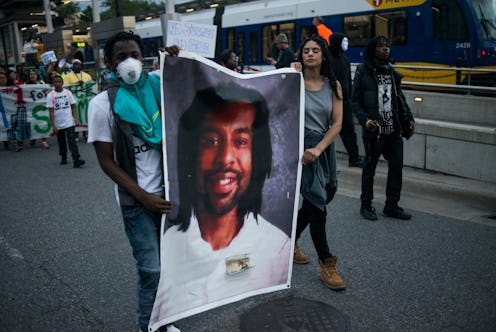News
The NRA Will Defend Your Second Amendment Right, Unless You're Black

The National Rifle Association is one of the most powerful lobbying groups in the United States, dedicated to protecting the rights of American gun owners, no matter how politically charged the issue is. But in the wake of the acquittal of the cop who shot Philando Castile, a black gun owner, the NRA has remained conspicuously silent.
Castile was shot at seven times while seated in his car, seconds after informing the officer — as he was meant to do — that he had a gun in the car. The NRA's initial response to it was muted. In a statement it released last July, the organization noted that the incident must be "thoroughly investigated," and maintained that it would "have more to say once all the facts are known."
But since the verdict came down, all the facts indeed have became known, including the release of some harrowing dashboard footage and widespread commentary, even from some conservative observers, describing the outcome as unjust. The NRA has to yet to put out a statement a full five days after the trial ended.
On Monday, Trevor Noah of The Daily Show highlighted this rather glaring omission, summarizing the NRA's advocacy for gun owners: "Unless you're black."
There’s one group you would expect would be losing their goddamned minds about this: the NRA. But for some strange reason, on this particular case, they’ve been completely silent. Completely silent. And yet, according to their rhetoric, this is everything that they stand against, right? An officer of the state, depriving a citizen of his life because he was legally carrying a firearm? "Unless you’re black," is what it should say. It’s interesting how the people who define themselves by one fundamental American right, the right to bear arms, show that once race is involved, the only right that they believe in is their right to remain silent.
While the NRA wasn't completely silent right after Castile's shooting, its guarded statement avoided making an affirmative stance in his defense — it didn't even refer to him by name, instead alluding to "reports from Minnesota." The silence, at this point, is fairly deafening, and whatever the reason, it sends the precise message that Noah described ― that the only thing worse than someone's Second Amendment rights being infringed is a black man exercising those rights.
Were the NRA's membership not galvanized by issues of race, racism, or white supremacy ― and it's probably not fair to assume that all of them are ― then this surely ought to lead to a deep fissure between some card-carrying members and the organization that claims to represent their interests. Whether or not that will happen, however, remains to be seen.